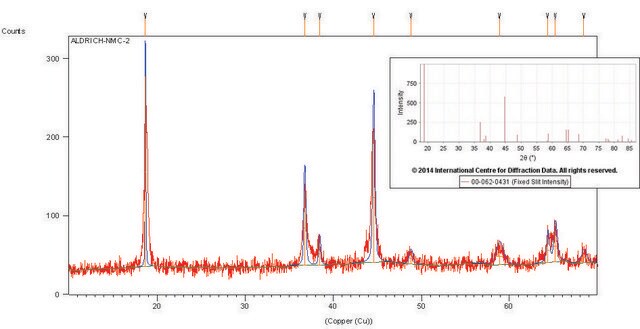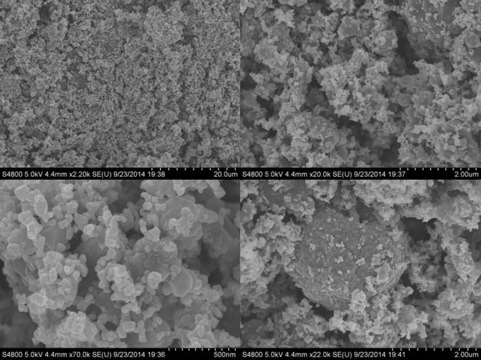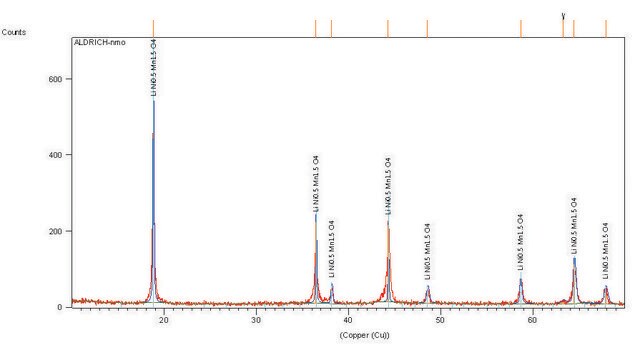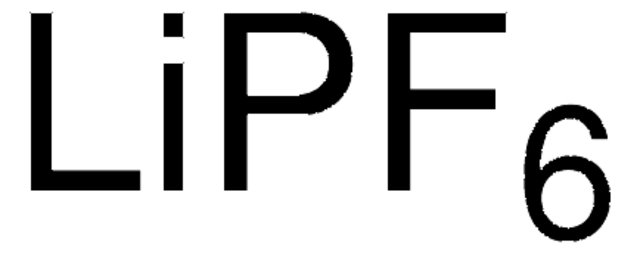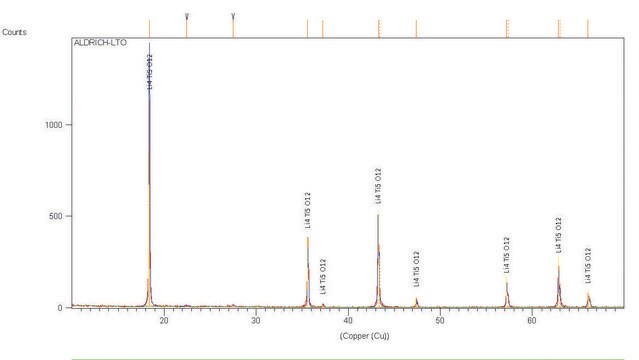442704
Lithium cobalt(III) oxide
99.8% trace metals basis
Sinonimo/i:
Lithium cobaltite
About This Item
Prodotti consigliati
Grado
battery grade
Saggio
99.8% trace metals basis
Stato
powder
PM
Mw 97.87 g/mol
Composizione
LiCoO2
Caratteristiche più verdi
Design for Energy Efficiency
Learn more about the Principles of Green Chemistry.
sustainability
Greener Alternative Product
Densità
4.82 g/cm3 (lit.)
applicazioni
battery manufacturing
Categoria alternativa più verde
, Enabling
Stringa SMILE
[Li+].[O-][Co]=O
InChI
1S/Co.Li.2O/q;+1;;-1
BFZPBUKRYWOWDV-UHFFFAOYSA-N
Cerchi prodotti simili? Visita Guida al confronto tra prodotti
Descrizione generale
Applicazioni
Prodotti correlati
Avvertenze
Danger
Indicazioni di pericolo
Consigli di prudenza
Classi di pericolo
Aquatic Acute 1 - Aquatic Chronic 1 - Carc. 2 - Repr. 1B
Codice della classe di stoccaggio
6.1C - Combustible acute toxic Cat.3 / toxic compounds or compounds which causing chronic effects
Classe di pericolosità dell'acqua (WGK)
WGK 3
Punto d’infiammabilità (°F)
Not applicable
Punto d’infiammabilità (°C)
Not applicable
Dispositivi di protezione individuale
dust mask type N95 (US), Eyeshields, Faceshields, Gloves
Scegli una delle versioni più recenti:
Possiedi già questo prodotto?
I documenti relativi ai prodotti acquistati recentemente sono disponibili nell’Archivio dei documenti.
I clienti hanno visto anche
Articoli
Increasing fuel costs and concerns about greenhouse gas emissions have spurred the growth in sales of hybrid electric vehicles (HEVs) that carry a battery pack to supplement the performance of the internal combustion engine (ICE).
Nanomaterials for Energy Storage in Lithium-ion Battery Applications
Professor Qiao’s laboratory lays out recent advances in conversion type lithium metal fluoride batteries. This review explores key concepts in developing electrochemically stable microstructures for wide Li-ion insertion channels.
Electrode Materials for Lithium Ion Batteries
Il team dei nostri ricercatori vanta grande esperienza in tutte le aree della ricerca quali Life Science, scienza dei materiali, sintesi chimica, cromatografia, discipline analitiche, ecc..
Contatta l'Assistenza Tecnica.